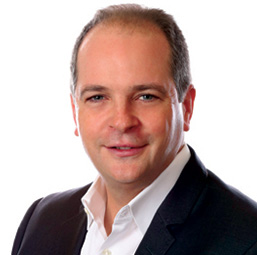ResMed seeks to leverage next-gen device, AI in new fiscal year

By Liz Beaulieu, Editor
Updated 10:36 AM CDT, Fri August 4, 2023
 SAN DIEGO – ResMed’s focus for the better part of its fiscal year 2023 was creating unconstrained access to the AirSense 10 – largely to meet increased demand due to a competitor’s large recall – and now that it has checked that box, the company’s focus is scaling production of the AirSense 11.
SAN DIEGO – ResMed’s focus for the better part of its fiscal year 2023 was creating unconstrained access to the AirSense 10 – largely to meet increased demand due to a competitor’s large recall – and now that it has checked that box, the company’s focus is scaling production of the AirSense 11.
That unconstrained access to the AirSense 10 was a big reason why the company posted a 30% increase in device sales in the U.S., Canada and Latin American countries and a 24% increase globally for the fourth quarter of its fiscal year 2023.
“We remain on allocation on the AirSense 11 platform for the next few quarters, but I want to be clear on this point: With the combined availability of the unconstrained AirSense 10 platform, we have enough devices to meet all the customer needs we see in the major markets and globally,” said Mick Farrell, chairman and CEO, during a conference call to discuss the company’s latest financial results on Aug. 3. “With that powerful combination, we have the two best device platforms on the market.”
It was also a strong quarter for mask sales (up 19%) and software-as-a-service sales (up 34%).
While the AirSense is a great device, the AirSense 11 has better innovation, including a touch screen and a personal therapy assistant, and better engagement, especially with ResMed’s myAir patient monitoring app, Farrell said.
“We are seeing strong adoption of myAir by folks using AirSense 11,” he said. “In fact, it is more than double the adoption rate that we saw with our AirSense 10 platform with many, many millions of patients signing up and engaging daily on their myAir app to view their own sleep data on their own phone and to review their own therapy data. This is important as engagement with a digital health platform like myAir is directly linked to higher adherence to therapy in patients. And higher adherence to therapy is directly related to better patient outcomes, to increased resupply and to better economics for the payer and the health care provider with lower overall healthcare costs.”
The AirSense 11 also has a better margin – even more reason ResMed has “the pedal to the floor” to scale production, Farrell said. But in the meantime, the company won’t sacrifice what’s best for patients to improve its margin, he said.
“We’ve really been focused on the patient and making sure no one is left behind,” he said. “Our view is that if there's a patient available and we have the parts and pieces and the ability to make an AirSense 10 to take care of that demand now while we ramp AirSense 11, we're going to do it. It’s a slightly lower margin for us, but we get that patient on therapy. We're not going to manage just to a gross margin line and say, ‘Well, let's not do that and make those products.’”
Another focus of ResMed’s for fiscal year 2024: Launching several artificial intelligence-driven products that will enhance myAir and AirView, its cloud-based patient management system, Farrell said.
“We’ve done early testing and the response has been very positive,” he said. “We will refine to the optimal digital design and then we will launch and then we will scale these products around the world. These AI-driven data products provide personalized suggestions to increase therapy adherence and to, ultimately, improve patient outcomes, as well as patient, physician and provider experience.”
Comments